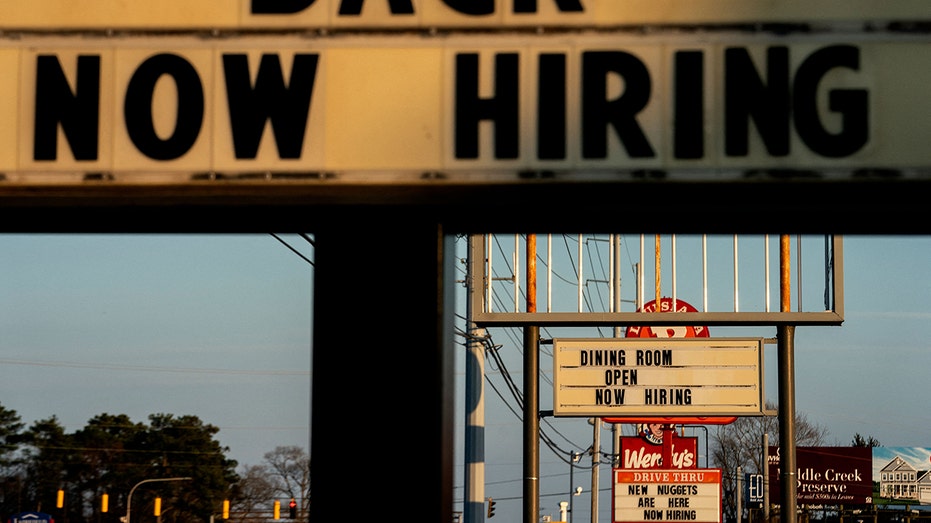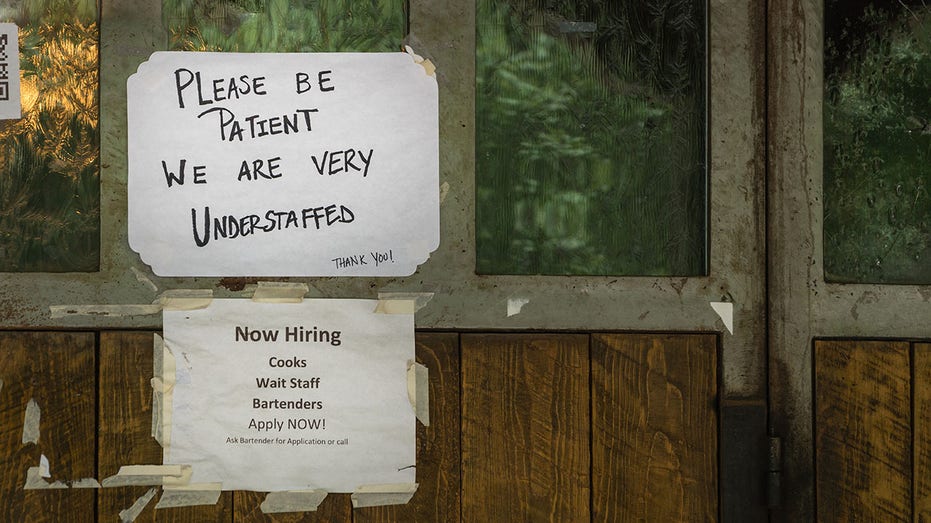The Great Resignation turns to the Great Regret as worker needs are not being met, expert says
Survey shows 26% of people who quit their job during what was dubbed the 'Great Resignation' already regret it
The fact that workers regret quitting during the Great Resignation underscores a more significant issue: worker needs are not getting met.
That's according to John Morgan, president of Lee Hecht Harrison (LHH), a global provider of talent acquisition and job recruitment solutions.
According to a recent survey by Joblist, about 26% of people who quit their job during what was dubbed the Great Resignation already regret it. Additionally, 42% of people who found a new job after quitting said the new gig didn't live up to their expectations.
THE 'GREAT RESIGNATION' IS FAR FROM OVER, STUDY SHOWS
Not only is this a sign that "Great Regret is happening but also that workers are looking for a better workplace culture, and are finding that these needs aren’t being met by either company," Morgan said.
Chad Carden, founder of consulting firm The Carden Group, said many employees had been lured away by promises of higher pay, better titles and better perks during the Great Resignation.

Now Hiring signs are displayed in front of restaurants in Rehoboth Beach, Delaware, on March 19, 2022. (STEFANI REYNOLDS/AFP via Getty Images / Getty Images)
Younger professionals, in particular, also had a "heightened expectation" to have more paid time off, schedule flexibility and meaningful work and were willing to make a change to attain this, according to Kelly Lannan, senior vice president for emerging customers at Fidelty Investments.
In May, a survey from Fidelity revealed that approximately 61% of young professionals between the ages of 25-35 years old changed jobs in the last two years or plan to do so within the following two years.
A record number of American workers – 4.5 million – quit their jobs in November 2021, according to data from the Bureau of Labor Statistics. It's a significant uptick from November 2020, when 3.2 million people quit. It didn't stop there. BLS data shows another record 4.5 million Americans quit in March 2022.
JOBLESS CLAIMS CLIMB AGAIN, HOVERING NEAR 8-MONTH HIGH
"Ultimately, employees moving to new roles and new organizations are really looking for what makes them happy, and often the sentiment is that more money equals a happier life," he said. "For instance, sign-on bonuses seem great, but is it being offered because the organization's culture isn't one that cultivates value and fulfillment in its employees?"

Understaff hiring sign (iStock / iStock)
Carden stressed that it's vital for employees to do their due diligence and to look into the offer and company before taking the job.
Still, "to help retain employees, businesses have the responsibility to cultivate an environment of clarity, alignment and purpose that connects employees to business goals and objectives where they feel valued and trusted," he added.
IS THE UNITED STATES ENTERING A RECESSION?
Morgan agreed, saying that it is in the employer's benefit to focus on the wellness of their staff and ensure that workers are satisfied with the culture of the workplace.
"Organizations that are navigating the impacts of inflation and constricting budgets are facing tough business decisions, but it does cost much less money and is better for company morale overall to reskill and redeploy existing talent rather than overhauling workforces entirely," he added.

A hiring sign is displayed outside a retail store in Buffalo Grove, Ill. (AP Photo/Nam Y. Huh, File / AP Newsroom)
That said, Morgan argued that Great Resignation has shifted how companies prepare for a possible recession. Rather than instituting massive layoffs, "organizations are doing what they can to hold onto their talent even through a recession because they’ve seen how scarce talent is and that turnover is more costly in the long run," he said.
CLICK HERE TO READ MORE ON FOX BUSINESS
Still, he recognized that there is a "high likelihood" that job cuts will likely accelerate in the second half of the year. Some companies have already started laying off employees.
The chief executives of Alphabet and Meta warned employees that they need to step up their productivity amid the uncertain economic environment, prompting fears of potential layoffs. Meanwhile, Walmart, Oracle and Robinhood have already started trimming their workforces.





















